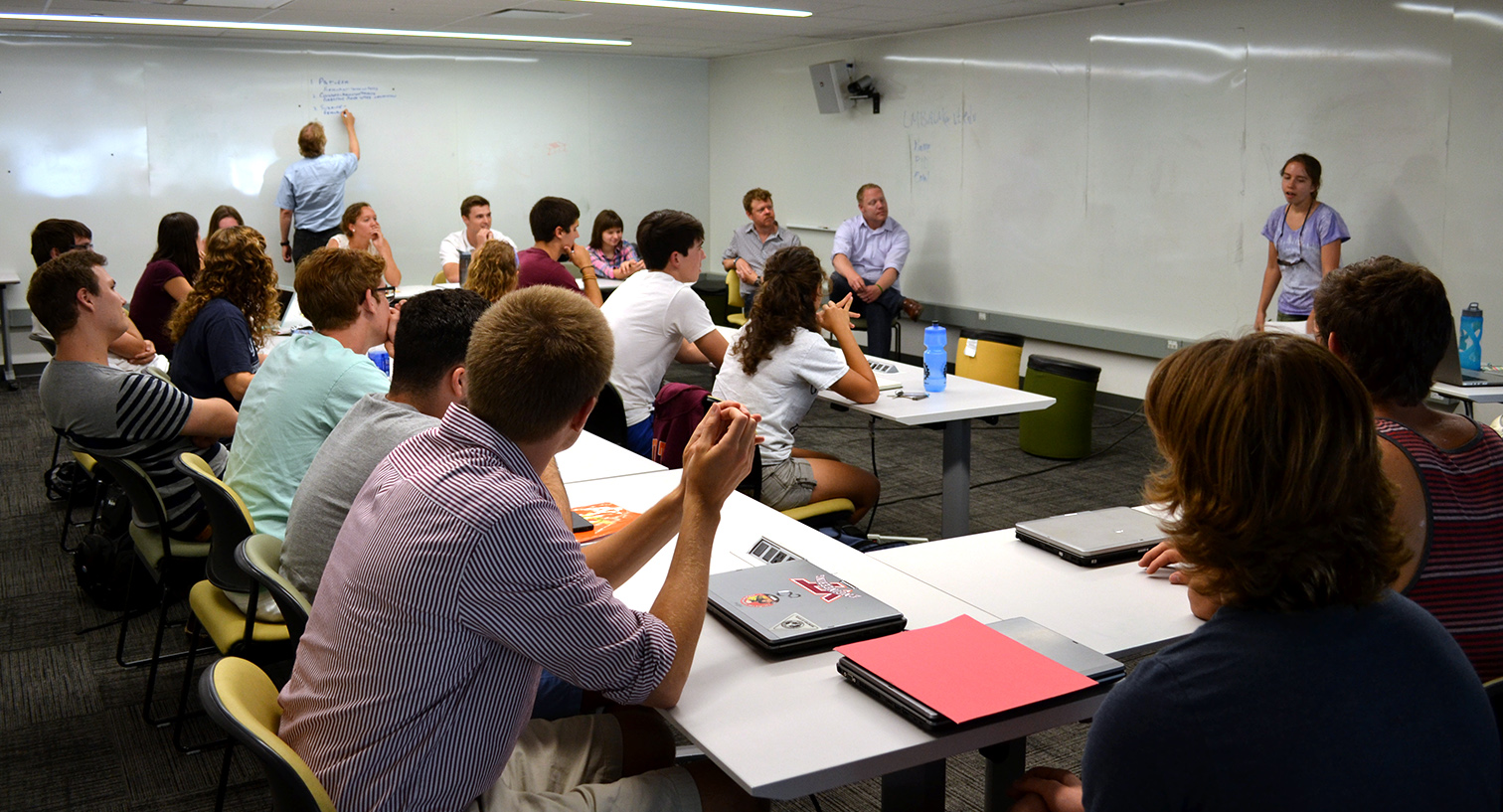Students to network with nationally recognized innovators, entrepreneurs 'At the Nexus'

A record number of Virginia Tech entrepreneurial students will interact with seasoned innovators “At the Nexus,” a summit scheduled Nov. 12-14 at The Inn at Virginia Tech and Skelton Conference Center.
More than 100 students already are registered and about as many entrepreneurs and panelists are expected to join them, organizers said. The Pamplin College of Business, the Office of the Vice President for Research and Innovation, and the Institute for Creativity, Arts, and Technology are co-sponsoring the event.
“I am excited our students will have the opportunity to connect with alumni in a way where they can learn and network,” said Derick Maggard, executive director of the Apex Systems Center for Innovation and Entrepreneurship. “Last year, multiple students came away from the conference with mentors, and I expect many more of those connections to be made this year.”
In addition to entrepreneurial alumni, students will be able to network with nationally known innovators such as Alan Macy, the research and development director, past president, and a founder of BIOPAC Systems Inc. of Goleta, California, and Kunal Mehta, author of “Disruptors,” a book that profiles the heartbreaks and triumphs of entrepreneurs behind game-changing companies such as Pinterest and Foursquare.
For Macy, who designs data collection and analysis systems that life science researchers use to understand biological processes, entrepreneurship takes place in an environment where collaborative people recognize “the magic of the moment.”
Macy’s magical moment came in 1983, when he was among a group of engineers introduced to a cardiologist, who said, “You guys might be interested in this.”
To diagnosis heart problems, doctors frequently need their patients to wear a machine that records heart rhythms for 24 hours to 48 hours. For patients of that era, it meant lugging around a 1980s-sized tape recorder connected by wires to their chests. Besides the inconvenience, the device did not record or replay data very well.
“I was in a mix with a lot of collaborative people who had a lot curiosity and a fascination for the potential of things. The cardiologist showed us the device and just laid out the problems for us. Ideas were bouncing around like crazy,” Macy said in a telephone interview from his office at BIOPAC Systems in Goleta. “Many things could have been gotten us started, but this situation was the trigger that led us to start the company.”
It was among the first of many pivotal moments in Macy’s entrepreneurial career.
“At the time, I was just making decisions and working with energized people,” he said. “In retrospect, I see it was about paying attention to my environment and what I was being drawn to — there’s magic in moments when you are pulled in a particular direction with a group of exceptional people. There’s no way I could have gone forward without extremely competent people around me.”
Today, as an applied science artist, Macy specializes in interactive sculpture and environments and cybernated art — a new media still in its invention stage that embraces the complexity of human thought and the participatory nature of computers.
“Alan Macy is perfect for the conference because he is so multidimensional,” said Ben Knapp, director of the Institute for Creativity, Arts, and Technology. “He’s an entrepreneur who has built a huge company while being involved with research his whole career. We have a pathway at Virginia Tech that connects research, innovation, and entrepreneurship — his career in many ways reflects that pathway. We also have so many pieces that tie our campus together — arts, technology, sociology, anthropology, engineering, sciences — it takes an exceptional person to draw those pieces together.”
Likewise, Knapp said Kunal, the founder of Mehta Apartments, a premier line of service apartments based in New York City, tells the stories of ordinary individuals who chased extraordinary passions, surmounting incredible obstacles before ultimately succeeding.
“If young entrepreneurs are looking for inspiration, this is where they will find it,” Knapp said.
Dedicated to its motto, Ut Prosim (That I May Serve), Virginia Tech takes a hands-on, engaging approach to education, preparing scholars to be leaders in their fields and communities. As the commonwealth’s most comprehensive university and its leading research institution, Virginia Tech offers 240 undergraduate and graduate degree programs to more than 31,000 students and manages a research portfolio of $513 million. The university fulfills its land-grant mission of transforming knowledge to practice through technological leadership and by fueling economic growth and job creation locally, regionally, and across Virginia.







